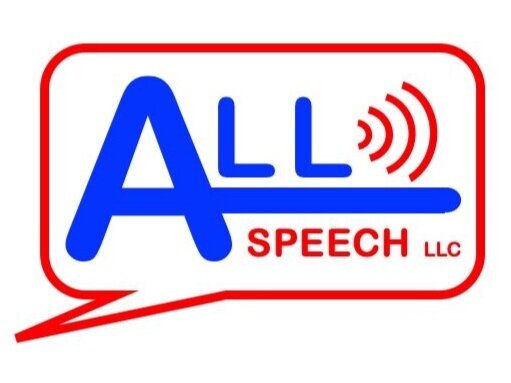Speech Therapy for Kids
Pediatric Speech-Language Pathologists (SLPs) work with many children with speech sound problems. Also, SLPs help with many other issues. SLPs see children in private, educational, and medical settings for various conditions to maximize swallowing/feeding and communication skills. Here are some ways we can help your child:
Articulation/ Speech: when your child's speech is not easy to understand because of difficulties with speech sounds. The diagnosis in these situations could be:
Motor Speech Disorders, such as Childhood Apraxia of Speech or Dysarthria
Speech Sound Production Disorder due to difficulty with articulation or phonological processing
Fluency Disorder: effortful/halting speech and the secondary behaviors that may co-occur
Stuttering
cluttering
Voice and Resonance: when the voice does not represent the child’s age or gender for various reasons
Voice Disorders due to the misuse of the voice, a pathological case, or a neurogenic origin
Resonance disorders due to the misuse of the vocal tracts or structural reasons such as cleft lip, cleft palate, or both
Language: difficulties with constructing what to say, understanding what was said, or both
Pediatric aphasia secondary to a stroke or traumatic brain injury (TBI: caused by a concussion or a motor vehicle accident)
Verbal communication deficits in Expressive language (speaking/sign language) and Receptive language (comprehension of language)
Reading, writing, and spelling disorders, such as Dyslexia and Dysgraphia
Hearing: specifically, the impact on speech and language development
Auditory Processing Disorder
Deaf and Hard of Hearing
Swallowing and Feeding: addresses situations when children do not take nutrients properly
Dysphagia (Swallowing Disorders)
Oral Myofunctional Disorders (OMDs) and negative oral habits (thumb sucking, a tongue thrust, etc.)
Picky Eaters
Cognitive Aspects of Communication: problems with the mental state of being aware of the situation (orientation) and responding to the environment appropriately
Executive Functions such as decision-making, problem-solving, and judgment
Attention
Memory
Processing speed
Safety awareness
Study skills
Social Communication: understanding of appropriate use of language in different social situations
Autism Spectrum Disorder (ASD)
Pragmatic Language Disorders – problems in understanding and using verbal and non-verbal language (such as gestures and tone of voice) for various social situations
Communication Modalities: substitutive approach when verbal language is not functional
Augmentative and Alternative Communication (AAC) Devices – High tech (such as iPad devices with communication apps) or low tech (such as a Picture Exchange Communication System [PECS]) depending on the child's needs and abilities
Early Intervention (EI) is essential to address children's disorders and delays. EI is the process of identifying atypical development from birth to three years of age and providing supportive family/caregiver education and intervention. Research shows that addressing delays and disorders earlier increases success in learning outcomes. It also increases the likelihood that children develop effective communication, learning, and feeding skills.
At All Speech, LLC., we provide speech therapy for kids online. If you have questions or concerns about your child’s communication or feeding skills, please reach out to us, and we will be happy to help. To sign your child up for speech therapy, call us at 972-533-1157 or contact us here, and we will gladly address your child’s communication and feeding needs. We look forward to working with you soon to accomplish your child’s communication goals.
Sources:
https://www.asha.org/events/slp-summit-glossary/
https://www.asha.org/practice-portal/professional-issues/early-intervention/#collapse_3
